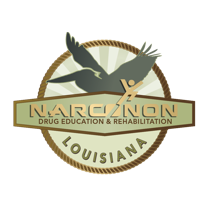Make 2021 A Better Year

Over the last year, I have spoken to countless families who, upon the initial pandemic lockdowns became painfully aware of reality; their loved one had an addiction. Upon the initial lockdowns over a year ago, many addicts were left without their drug of choice, placing them in difficult situations. Even more than before the lockdowns, they would do anything to get their fix, sometimes placing their family members and loved ones in the crossfire of their addiction. I have talked to so many families who, due to the enforced closeness, experienced horrible encounters with their loved ones such as verbal abuse, theft, and being put at risk for exposure to the virus due to their addicted loved one breaking quarantine to chase their fix.
I think everyone would agree that life will never fully go back fully to the way it was before and this is especially true for those who went through the difficult situations above. Some of the families were able to get their son, daughter, spouse, or relative into treatment. For far too many though, this was not the case. Treatment was either out of reach, their loved one refused to go or there was a combination of both.
These are the two key problems many families face when attempting to get treatment for an addicted family member. I hope to give some guidance on this and improve the chances you will be able to help your loved one.
One of the biggest mistakes with treatment placement I routinely see families make is confronting the addict before having treatment lined up. I understand why this happens of course. It is hard to sit and do research while your loved one continues to use and spends day after day on the verge of disaster. However, I have seen situations where a family has the addict ready and willing to go to treatment, but they do not have a treatment facility lined up for them. Therefore, it is so important to choose a treatment facility for your loved one before confronting them, since doing so after you gain their agreement could give them time to back out.
The second mistake I regularly see is giving their loved ones options. While giving your loved one an option may feel like the right thing to do, this comes with a built-in excuse to put off getting into drug addiction treatment. For example, say you had a spouse who really wanted to go on vacation and gave you a list of places they wanted to go and wanted you to pick from. But you really didn’t want to go. So instead, each time they asked you about the vacation, you would tell them you were still researching. You could do that for quite some time and in the case of the addict, all the time “researching” would give more time to continue their use.

iStockPhoto.com
Put that in the context of someone who spends some portion of their day every day intoxicated. That would simply make it much worse. Also, the choice they do make may not be the best for them or may be picked for some silly reason and not because it is the best treatment for them. i.e., wanting treatment for only thirty days, preferring a certain kind of weather, or hoping they can go to the beach while they are in treatment. As an addict who grew up in Miami, I can tell you I love the beach, but it never did anything to help me handle my issues or get sober.
The next large mistake families will make is to shy away from using any amount of pressure when appealing to the addict’s judgment has clearly failed. While I do not believe anyone should be railroaded into treatment, that is not why ultimatums should be used by families anyway. Ultimatums should be given for two reasons. First, in an attempt to have the addict consider treatment more seriously. The second and most important reason is to protect the family. Addiction damages everyone, not just the addict.
If you don’t believe me, speak with a mom who has for the last decade tried to save her child from addiction. This weighs on them daily. By failing to give any ultimatums you do not preserve your relationship with your loved one, you fall into the category of enabling. I should mention here that cutting the addict completely out of your life and never talking to them again is not an ultimatum (but a refusal to address and confront the situation). However, refusing financial support and refusing to turn a blind eye to their use or get them out of every problem it causes is giving an ultimatum.
If you are still unsure of how to find treatment or approach your loved one, we have resources available to help. We have an excellent guide to intervention that is free which you can download at no cost here:
If you are still trying to find addiction treatment please call. We have specialists to assist you in locating the best treatment for your loved one.


